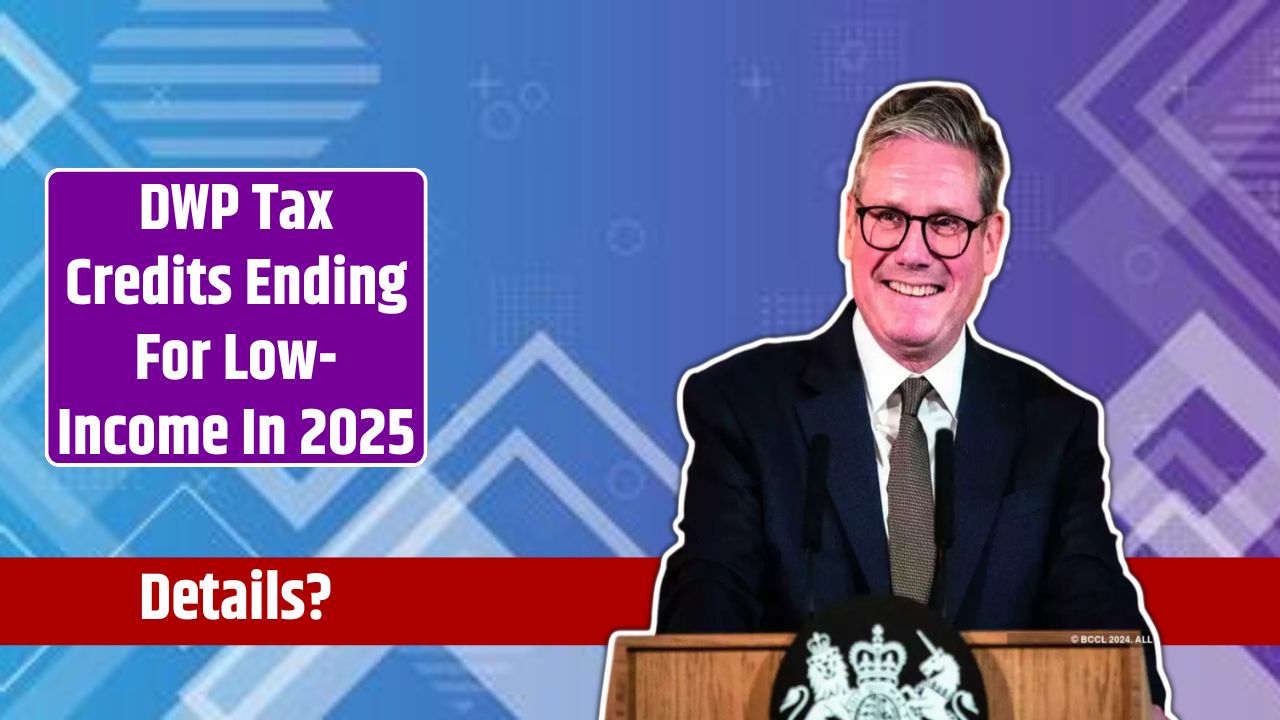The UK government has confirmed that tax credits will end by April 2025, impacting thousands of pensioners who rely on them for financial support.
The Department for Work and Pensions (DWP) is urging individuals receiving tax credits to switch to Pension Credit or Universal Credit before the deadline to prevent payment interruptions.
This change is part of a broader welfare reform aimed at simplifying benefits. However, pensioners who fail to act in time risk financial hardship as tax credits will automatically stop.
This guide explains who is affected, the available alternatives, and the steps pensioners must take before the deadline.
DWP Tax Credits Ending
| Category | Details |
|---|---|
| Deadline | April 5, 2025 |
| Who is Affected? | Pensioners receiving tax credits |
| What’s Changing? | Tax credits are being replaced by Universal Credit or Pension Credit |
| Notification Process | DWP will send letters with instructions |
| Consequences of Inaction | Payment loss, delays in receiving new benefits, financial hardship |
| Alternative Benefits | Pension Credit (for pensioners) or Universal Credit (for some mixed-age couples) |
Why Are Tax Credits Ending?
The UK government is replacing tax credits with Universal Credit and Pension Credit to:
- Simplify the benefit system
- Ensure fairer financial support for those in need
- Reduce fraud and errors in payments
The goal is to create a more efficient welfare system that distributes aid more effectively to low-income individuals and pensioners.
Who Will Be Affected?
The changes will impact three main groups:
1. Pensioners Currently Receiving Tax Credits
If you depend on tax credits, you must apply for Pension Credit or Universal Credit to continue receiving financial support.
2. Low-Income Pensioners
Those who supplement their income with tax credits should check if they qualify for Pension Credit, which offers additional financial help.
3. Mixed-Age Couples
If one partner is over State Pension age and the other is under, the household may need to apply for Universal Credit instead of Pension Credit.
What Are the Alternatives to Tax Credits?
1. Pension Credit
Pension Credit is designed specifically for pensioners and provides financial assistance to those with low incomes.
Key Benefits of Pension Credit:
- Increases pension income for those below a certain threshold
- Provides free TV licences for pensioners aged 75 and over
- Reduces council tax bills and housing costs
- Offers discounts on energy bills and Cold Weather Payments
If you are above State Pension age, check your Pension Credit eligibility to maintain financial support.
2. Universal Credit
Universal Credit is mainly for working-age individuals, but some pensioners (especially those in mixed-age couples) may need to apply.
Key Features of Universal Credit:
- Combines multiple benefits into a single monthly payment
- Provides housing support for rent or mortgage payments
- Eligibility depends on household income, savings, and circumstances
Note: If you have over £16,000 in savings, you may not qualify for Universal Credit or Pension Credit. It’s essential to check eligibility in advance.
Steps Pensioners Must Take Before April 2025
To avoid losing financial support, pensioners should take the following actions:
1. Watch for Notifications from the DWP
- The DWP will send letters to affected individuals.
- These letters will explain how to transition and provide instructions.
2. Check Your Eligibility for Pension Credit or Universal Credit
- Use the Pension Credit calculator on the government website.
- Contact Citizens Advice or a welfare support service for help.
3. Apply Early to Avoid Payment Delays
- Submit applications as soon as you receive the DWP notification.
- Avoid waiting until the last minute, as delays could affect payments.
4. Gather Required Documents
Having the right documents speeds up the application process. Prepare:
- Proof of income and savings
- Details of current tax credits and benefits
- ID documents (passport, driver’s licence, or National Insurance number)
5. Seek Support If Needed
- Contact Citizens Advice, local welfare charities, or DWP helplines.
- Speak with a benefits advisor for personalised assistance.
What Happens If Pensioners Miss the Deadline?
If you fail to apply before April 5, 2025, the following issues may arise:
1. Immediate Loss of Payments
- Tax credits will stop automatically after the deadline.
- If no alternative benefit is applied for, pensioners may lose financial support.
2. Delays in Receiving New Benefits
- Late applications could mean weeks or months without payments.
- Processing times for new claims vary, adding to financial stress.
3. Missing Out on Additional Benefits
Pensioners who miss the deadline could also lose access to:
- Housing support
- Council tax reductions
- Free TV licences for those over 75
Why Acting Now is Crucial
The switch from tax credits to Pension Credit or Universal Credit is a major welfare reform. Taking action early ensures:
No disruption in financial support
Faster processing of benefit applications
Access to additional benefits that can ease living costs
Many pensioners may not realise they qualify for Pension Credit. Checking eligibility now can secure financial stability before tax credits end.
The DWP Tax Credits Ending 2025 policy marks a significant shift in the UK’s welfare system. Pensioners must take immediate action to ensure they continue receiving financial support.
Check your eligibility for Pension Credit or Universal Credit.
Apply early to avoid payment delays.
Gather the necessary documents for a smooth transition.
Don’t wait until the deadline—secure your financial future today.
















